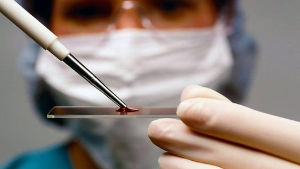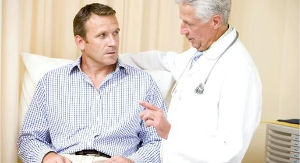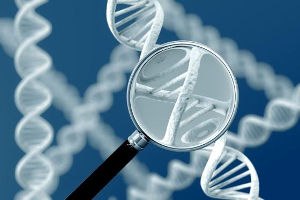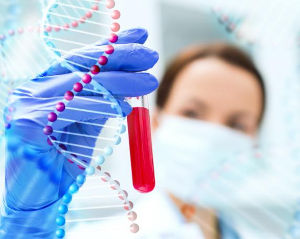 Every year, the number of married couples over the age of 35 who have decided on the IVF procedure is increasing. But before using assisted reproductive technologies (ART), they have to undergo a full-fledged diagnosis. It involves the delivery of mandatory tests and the passage of a hardware examination. Also, spouses need to receive genetic counseling, according to the results of which it will be possible to assess the likelihood of having a child with chromosomal and hereditary pathologies.
Every year, the number of married couples over the age of 35 who have decided on the IVF procedure is increasing. But before using assisted reproductive technologies (ART), they have to undergo a full-fledged diagnosis. It involves the delivery of mandatory tests and the passage of a hardware examination. Also, spouses need to receive genetic counseling, according to the results of which it will be possible to assess the likelihood of having a child with chromosomal and hereditary pathologies.
Mandatory types of examinations before IVF
The possibility of conceiving a child by a couple at the age of 35 in the natural cycle decreases by 2-2.5 times. To a greater extent, this is due to the extinction of reproductive function and menstrual irregularities in women. In addition, such couples have an increased risk of having children with genetic disabilities. Therefore, reproductive specialists urge spouses who have decided on late childbirth to undergo a full examination of the whole body before conception.
General analyzes for a couple
 Before being tested, women should visit a gynecologist-reproductologist, and men should visit a urologist-andrologist. In the process of a private conversation, specialists conduct an initial examination, collect anamnesis and prescribe a test. Mandatory examinations for both spouses include:
Before being tested, women should visit a gynecologist-reproductologist, and men should visit a urologist-andrologist. In the process of a private conversation, specialists conduct an initial examination, collect anamnesis and prescribe a test. Mandatory examinations for both spouses include:
- a smear from the urethral canal for genital infections (PCR diagnostics, cytological and microscopic examination);
- blood test for group and Rh factor;
- blood test for hormones.
Based on the results of these tests, doctors can determine the cause of infertility and factors that negatively affect the functioning of the reproductive system. However, in order to obtain a complete picture of the health status of patients, a number of examinations are prescribed - separately for women and for men.
Analyzes and examinations for women from 35 years old
 Preparing a woman for IVF is one of the main components of the success of fertility therapy using ART. According to the results of diagnostics, specialists can identify pathologies and negative factors that impede the conception and bearing of the fetus. Mandatory examinations for women over 35 include:
Preparing a woman for IVF is one of the main components of the success of fertility therapy using ART. According to the results of diagnostics, specialists can identify pathologies and negative factors that impede the conception and bearing of the fetus. Mandatory examinations for women over 35 include:
- Analysis of urine;
- coagulogram;
- clinical and biochemical blood test;
- liquid cytology (a smear is taken from the cervical canal for oncocytology);
- fluorography;
- Ultrasound of the thymus;
- mammography;
- echocardiography.
After passing the examination, women are sent for a consultation with a mammologist with the results of mammography. After that, the therapist evaluates the results of the tests and hardware diagnostics and draws up a conclusion about the possibility of the patient undergoing the IVF procedure.
Analyzes and examinations for men over 35 years old
For men, the list of mandatory examinations is not as extensive as for women. To assess the patient's reproductive health, the following diagnostic methods are used:
- MAR test;
- spermogram.
 If necessary, the andrologist may prescribe additional types of examinations:
If necessary, the andrologist may prescribe additional types of examinations:
- dopplerography of the scrotum organs;
- study of morphology according to Kruger;
- Ultrasound of the prostate and seminal vesicles;
- a blood test for hormones;
- biopsy of the sex glands.
The survey is carried out with one single purpose - to identify the causes of infertility. With an accurate diagnosis, doctors will be able to choose the right course of treatment for the patient and thereby increase the chances of success for the IVF procedure.
Genetic research
Genetic consultation is a prerequisite for couples from 35 years old to enter the IVF protocol. With age, the risk of developing intrauterine pathologies increases several times, so spouses may be assigned additional tests for genetic research.
HLA typing
Based on the results of this examination, the geneticist determines the degree of compatibility of the spouses by antigens. For the pregnancy to proceed without complications, it is very important that the antigens of the parents are different. The embryo possesses a unique set of antigens that can be identified by the mother's immune system as foreign objects.
If the HLA antigens of the future parents are very similar, cells similar to those of the mother's body will prevail in the fetus. In this case, the woman's immune system identifies the embryo as a foreign agent that must be destroyed. This is why women over 35 years old often experience spontaneous abortion.
Determination of the karyotype
 The analysis allows you to identify deviations in the number and structure of chromosomes of future parents. Mutations and abnormalities in genes can cause infertility or the birth of a child with severe hereditary diseases:
The analysis allows you to identify deviations in the number and structure of chromosomes of future parents. Mutations and abnormalities in genes can cause infertility or the birth of a child with severe hereditary diseases:
- polyploidy;
- isochromosomy;
- Down syndrome;
- translocation of chromosomes;
- Shereshevsky-Turner syndrome;
- Patau syndrome, etc.
If deviations are detected in at least one of the spouses, the risk of developing pathologies in the child increases several times. In this regard, experts can offer future parents to use donor sperm or an egg.
Diagnostics of hereditary polymorphism
According to the results of numerous studies, inherited thrombophilia increases the risk of miscarriage, placental abruption and the development of preeclampsia. Geneticists warn that even a small risk of thrombosis is fraught with a severe course of pregnancy, its interruption and the development of congenital diseases in the child.
 Molecular genetic diagnostics can detect abnormalities in chromosomes and assess the likelihood of congenital diseases. Using this method, it is possible to identify a huge number of possible pathologies in the fetus: hemophilia, cystic fibrosis, Gilbert's syndrome, sensorineural hearing loss, myopathy, thalassemia, etc.
Molecular genetic diagnostics can detect abnormalities in chromosomes and assess the likelihood of congenital diseases. Using this method, it is possible to identify a huge number of possible pathologies in the fetus: hemophilia, cystic fibrosis, Gilbert's syndrome, sensorineural hearing loss, myopathy, thalassemia, etc.
Conclusion
A full examination of the spouses before IVF allows to establish the cause of infertility and eliminate factors that negatively affect the patient's reproductive function. Additionally, couples over 35 years old need to undergo a genetic examination, with the help of which it is possible to identify abnormalities in the structure of chromosomes and the risk of hereditary pathologies in the fetus. If the likelihood of having a sick child is very high, the couple is offered to use a donor ejaculate or egg.

